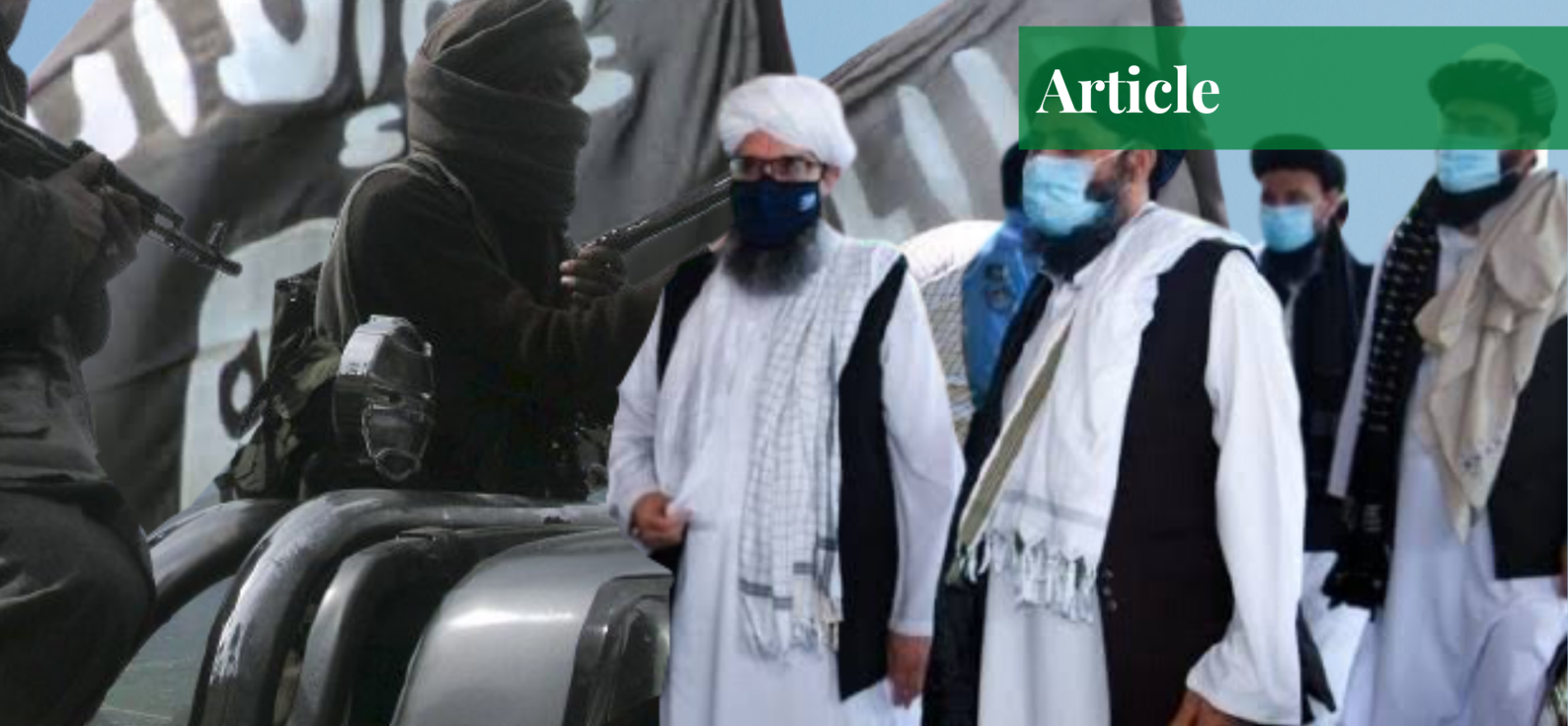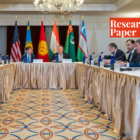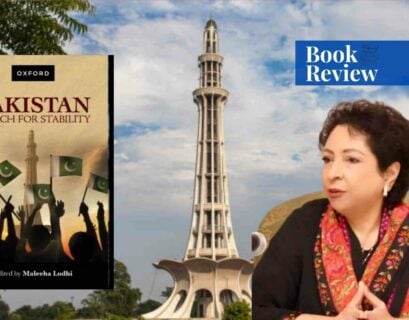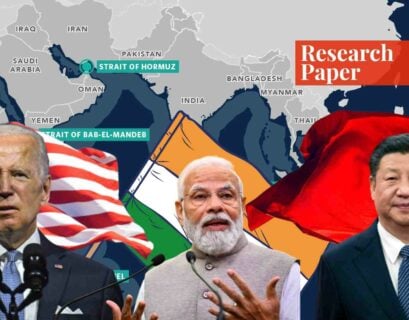Mr Muhammad Hamza Tanvir is an independent journalist and a political analyst, focusing primarily on regional and global strategic and political issues. He has authored numerous articles for different national and international publications.
The recent takeover of the Afghan Taliban in Kabul, at an astounding speed, has staggered everyone. The pro-Taliban people in Afghanistan and the neighboring countries are celebrating the Taliban win over the US and NATO forces but the real trial of the Taliban waits ahead. The Taliban have been fighting against the US for the past two decades and have stood triumphant. Their victory has ensued novel challenges for the Taliban leadership.
They are now being observed by the whole world about how they will deal with women and ensure human rights. Peace and stability are imperative for an enduring government and economic prosperity is a prerequisite for this. Thus, the Taliban leadership seeks international recognition as they are aware that without international aid, they will not be able to feed the populace of the country.
This has led the Taliban leadership to show that they are much moderate than erstwhile in their dealing with women. However, everyone knows that the Western countries will never be satisfied with their approach towards women and human rights as the West reckons the Taliban regime as an ideological adversary after the defeat of communism.
Samuel P. Huntington, in “The Clash of Civilizations”, stated that Islam will be the 21st century’s challenge for the Western capitalist civilization. Hence, it would not be fallacious to attribute the Afghan war to a conflict between two civilizations. The US withdrawal may have given the Taliban a temporary victory but they now have graver challenges.
The New Challenge: ISKP in Afghanistan
The Islamic State of Khurasan Province (ISKP)—an offshoot of ISIS—is also one of the biggest challenges for the Taliban government as both the groups have ideological differences and completely opposite aims. The Taliban only seek to establish their government inside Afghanistan while ISIS has global agendas and thus it poses threat to the peace of the whole region as well as to the whole world.
The recent attacks of ISKP terrorists on the Kabul airport show how the Taliban will have to face intricacies in the establishment of a stable government in Afghanistan. Adopting a moderate approach towards women and on other matters to cajole the international community can turn their ground-level soldiers towards ISIS and cause major damage to the Afghan Taliban.
Similarly, the resistance forces in Panjshir valley will also be a challenge for the Taliban leadership in the long run, even if they may be defeated for the time being. The resurgence of ISIS in the region will prove pernicious for the Taliban government and the neighboring countries, while it will somehow serve India and the USA for the time being.
Establishment of ISKP in Afghanistan
The Islamic State of Khurasan Province (ISKP) is a scion of ISIS that seeks to establish a worldwide caliphate. The group operates in Turkmenistan, Pakistan, Iran, and Afghanistan. It was established in 2014 by the splinters of Tehreek-e-Taliban Pakistan (TTP) and some fighters from Afghanistan. They pledged their allegiance to the late ISIS leader Abubakar Al-Baghdadi, whose views were based on violence and cruelty because they did not find their former group violent enough to satisfy their brutal desires.
It is claimed that the group is a contingent of Al-Qaeda. Although nothing can be said about the exact number of members of the group, yet, it is supposed that the group comprises about 3,000 fighters and is based in the northeastern province of Afghanistan—Nangarhar. ISKP is known for its violent terrorist activities. The group claims to be establishing an Islamic government but its barbaric history tells otherwise.
The group has been involved in humiliating the shrines of Ahle Bait and Sahaba-e-Kiram. They are also accused of bombing the shrines of Hazrat Amar bin Yasir (R.A) and Hazrat Owais Alqarni (R.A). It is widely believed that the US invasion in Iraq and other Muslim countries paved way for the emergence of ISIS as it inculcated a feeling in the natives that they were being oppressed by the foreigners and their governments were incapable of ensuring good governance.
The weakening of the Iraqi military, as a result of the US invasion, also fueled the rise of ISIS and Al-Qaeda in the region, as is the case in Afghanistan where the Taliban did not face any retaliation from a war-weary and demoralized Afghan army. The presence of ISKP in Afghanistan rivals the Afghan Taliban. One of the major reasons for this adversary is the ideological differences – the former belongs to Salafis and the latter follows the Deobandi school of thought. The dealing of the Afghan Taliban with the Shias of the country in a comparatively moderate way is also one of the major reasons for the conflict.
Sources of ISKP Funding
The main source of funding for the ISKP in Afghanistan comes from oil and the extraction of natural resources. As per the report by the NGO Global Witness in 2018, ISKP had a presence on the mountainous border between Pakistan and Afghanistan, due to the porous nature of the border. The forces and Afghan Taliban displaced the ISKP in Afghanistan from the regional strongholds in 2019. This deprived the group of the revenue of natural extraction.
Other major sources of the group’s financial support come from fundraising from like-minded locals, taxations, and the core group of ISIS. The core group’s main source of finances stems from oil. ISIS captured the oil fields in Syria and sells oil at half of the price of the world market. This lures many customers from around the world and results in the strengthening of ISIS.
Money laundering is another major source for such terrorist organizations. With the limited reach to the banks in Afghanistan, hawala/hundi serves as the everyday business in the country. The regulators around the world abhor the hawala system, because of its opacity and its role in assisting to fund terrorism, according to The Economist.
The US Department of the Treasury also states that ISIS uses the hawala system to transfer funds globally. This depicts how the ISKP and the core group of ISIS manage their funds. The hold of ISKP or ISIS-core in any area of the world would strengthen it economically and could prove minacious for the world.
ISKP and the Taliban Leadership
The immature withdrawal of the US forces from Afghanistan has once again fueled the rise of ISKP in Afghanistan as the group will now have a technologically weaker enemy in the country. The Taliban are good in guerilla fighting but now they will have to organize their militia to control the whole country. This will need a lot of training and mechanism building.
Furthermore, the eyes of the whole world are on the Taliban government in Afghanistan and their need for international recognition could force them to adopt a moderate approach towards women and other sects. This could be contrary to the will and ideology of the ground-level Taliban soldier and can result in internal discord among them. This internal strife will only serve ISKP in Afghanistan, as in past, the separatist TTP members have joined the former and the same could happen in case of any sort of discord among the Afghan Taliban.
The ISKP has launched multiple attacks in Afghanistan previously. It killed 24 people, including women and infants, in a terrorist attack on a maternity ward in Kabul. ISKP has launched a total of 22 attacks in Afghanistan in which 912 people died and 1,597 people were injured. Recently they have launched an attack on the Kabul airport in which more than 100 people have reportedly been killed including the Taliban soldiers. This shows how the ISKP is ready to rise in Afghanistan.
The Taliban leadership will have to follow a moderate approach in all the matters in order to gain international recognition and economic ties with the western markets, which are crucial for a stable and prosperous Afghanistan, and ensuring human rights is a prerequisite for all this. This moderate approach to show a good side of the Taliban regime could result in shattering the hopes of the foot soldiers and they can find the ISKP as the true representative of their views. This is one of the major challenges of the Taliban leadership.
The top leadership will have to take a prudent approach in fulfilling all the promises they are making to the international community otherwise they could have to face a serious backlash. Similarly, if the resistance force of Panjshir is defeated by the Taliban, they could join ISKP or make their own rebel group to conduct guerilla attacks against the Taliban regime which is against their will.
Regional Stability
The chaos in Afghanistan will have direct implications for the South Asian region. Insurgency in the country could result in the refugee influx in the neighboring countries. This could also cause the spread of terrorist activities in different countries, given the global designs of ISIS and anti-Pakistan views of TTP. The instability in Afghanistan will also impinge on China and her Belt and Road Initiative (BRI).
It could also result in the rise of the Eastern Turkmenistan Islamic Movement (ETIM) and its tilt towards ISKP in Afghanistan due to the China-Taliban nexus. ETIM and ISKP’s alliance could be highly detrimental for China as ISKP could use the Chinese atrocities on the Uyghur Muslims to further their own agenda. This will impinge the Belt and Road Initiative and China can face multiple attacks on BRI in Central Asia and CPEC as well.
Thus, it will not be erroneous to say that the future and stability of the South Asian region hinges on the piece in Afghanistan. It could also be assumed that the rivalry between the Taliban and ISKP in Afghanistan could serve the USA and India as it would help them counter the smooth Chinese rise. But in the long run, ISIS and all its factions pose a threat to the peace of the whole world.
Therefore, the international community must take up the mantle to support the Taliban government which is a corollary of their own immature withdrawal and US-backed corrupt Afghan regimes. The situation would have been much different if the US had invested in institution-building and educating the Afghan locals according to the international standards, however, this was not her interest. The international community could coerce the Taliban leadership, through dependency, to adopt a moderate approach instead of once again abandoning the Afghan people which could result in a much graver threat in the future.
If you want to submit your articles and/or research papers, please check the Submissions page.
The views and opinions expressed in this article/paper are the author’s own and do not necessarily reflect the editorial position of Paradigm Shift.



















